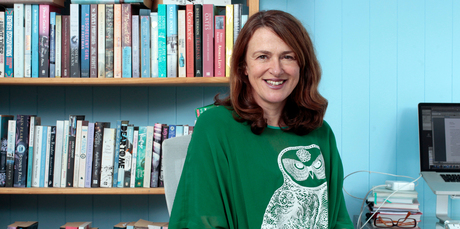Kiwi author Nicky Pellegrino imparts some tricks of the trade.

The most important thing to remember is to write something every day. Photo / Michael Craig
How to begin
It's perfectly possible to write a successful novel without taking a single creative-writing class - I know because I've done it. However, I still had to put some serious effort into learning the craft.
It may sound obvious but the most important thing is to read voraciously. Analyse each book. Think about what works and what doesn't. Take note of how the story has been structured and the techniques that have been used.
 When I began on my first book Delicious I found the most difficult thing was getting my characters from one place to another so I went back and reread some of my favourite novels to see how those authors had managed it. I did the same for The Italian Wedding to work out how to handle things like changes in narrator and flashbacks to the past.
When I began on my first book Delicious I found the most difficult thing was getting my characters from one place to another so I went back and reread some of my favourite novels to see how those authors had managed it. I did the same for The Italian Wedding to work out how to handle things like changes in narrator and flashbacks to the past.When you read a novel for the first time often it's purely for the pleasure of the story, and that's fine. A second read offers the opportunity to think about the nuts and bolts holding it together, such as, point of view - who is telling this story? Look also at character development, location, story arc, the balance of descriptive passages with dialogue, even the tense used. You can learn something from every book you read, even if it's a terrible one.
Full piece at the New Zealand Herald

Footnote:
Nicky Pellegrino, an Auckland-based author of popular fiction, is also the Books Editor of the Herald on Sunday where the above piece was first published on 26 August, 2012.
Her new novel When In Rome is set in 1950s Italy and is being published this week.
Her new novel When In Rome is set in 1950s Italy and is being published this week.





